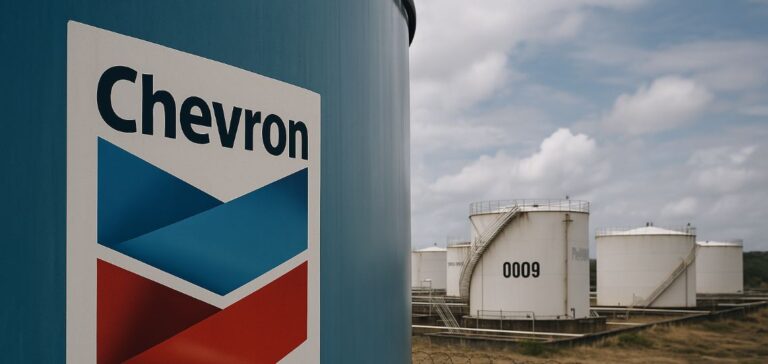US oil company Chevron Corporation has returned unsold crude oil shipments to Venezuela, citing its inability to process payments due to restrictions imposed by US authorities. The return comes despite a temporary licence granted by Washington allowing certain foreign firms to continue operations in the South American country until 27 May.
The restitution measure was announced on 12 April by the Vice-President of the Bolivarian Republic of Venezuela, Delcy Rodríguez, via her official social media accounts. She stated that the decision was a direct result of Chevron’s inability to make payments to Venezuela, due to the terms attached to the issued licence. This licence explicitly prohibits any payment to the Venezuelan government, to state oil company Petróleos de Venezuela S.A. (PDVSA), or to its subsidiaries.
Regulatory framework and impact on oil flows
The current licence was originally granted by former US President Joe Biden in 2022, allowing Chevron to maintain a limited presence in the country despite the oil embargo first enforced in 2019 under President Donald Trump’s administration. However, this authorisation was revised at the end of February by the Trump administration, leading to a revocation of permits effective from April, with a conditional extension until May.
In this context, other European energy firms, including Repsol S.A. (Spain), Maurel & Prom S.A. (France), and Eni S.p.A. (Italy), also saw their licences suspended, according to Venezuelan authorities. The US government justified the measure on the basis of the alleged failure by Venezuelan President Nicolás Maduro to honour electoral commitments made during previous diplomatic negotiations.
Consequences for Venezuela’s oil sector
According to figures released by PDVSA, Venezuela’s oil production currently stands at approximately 1mn barrels per day (b/d), down from nearly 3mn b/d before sanctions were imposed. Chevron accounted for roughly 200,000 b/d, or about 20% of national output, highlighting the industrial significance of the returned shipments.
In her statement, Delcy Rodríguez reaffirmed that Venezuela would continue to honour contractual obligations with multinational companies, stressing that PDVSA’s commercial operations adhere to the country’s legal framework. She also denounced what she described as an “economic war” orchestrated by the United States, without detailing potential legal implications of the returns for ongoing agreements.






















